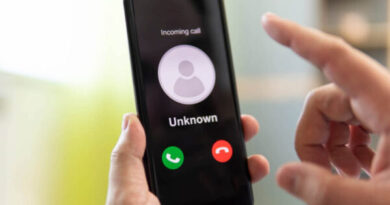Scam Alert: Beware of Suspicious Calls from These Numbers in Thailand
Warning: 20379099, 953769951, 095 362 3342, 0839985724, 953625312, 021806000, 20810300, 27009088, 20795271, 022329861, 020179600, 0839930649, 0953646214, 02-037-9099, 20962636, 20162098 in the Thailand
scam alert beware of callsfrom these numbers 20379099 953769951 095 362 3342953625312 and 20810300 in the thailand : technology has undoubtedly brought convenience and efficiency to our lives. However, with its benefits come certain risks, particularly in the realm of telecommunications. Scammers and fraudsters have devised cunning ways to exploit this technology for their own gains, often leaving innocent individuals vulnerable to their deceitful tactics. One prevalent scheme involves unsolicited calls from seemingly legitimate numbers. In Thailand, several numbers have been identified as potential sources of such scams. It is crucial to remain vigilant and informed to protect yourself from falling victim to these fraudulent activities.
Also read : https://thenewshunts.com/alert-spam-check-who-called-me-from-this-91743000-number-australia/
The Numbers to Watch Out For:
- 20379099
- 953769951
- 0953623342
- 953625312
- 20810300
These numbers have been flagged as potential sources of scam calls that attempt to manipulate individuals into divulging personal information, making monetary transactions, or engaging in other harmful activities. Scammers employ a variety of tactics to lure their victims, and being aware of these strategies can help you stay safe.
Common Scam Tactics:
- Impersonation: Scammers often impersonate legitimate institutions, scam alert beware of callsfrom these numbers 20379099 953769951 095 362 3342953625312 and 20810300 in the thailand : such as banks, government agencies, or utility providers, to gain your trust. They might claim there’s an urgent issue with your account, and they require sensitive information to resolve it.
- Threats and Fear: Some scammers resort to intimidation, threatening legal action, arrest, or fines if you don’t comply with their demands. Remember that legitimate entities do not communicate this way.
- Too-Good-to-Be-True Offers: If an unsolicited caller offers you a deal that sounds incredibly lucrative, be cautious. Scammers use tempting offers to manipulate victims into providing personal or financial information.
- Urgency: Scammers create a sense of urgency, pressuring victims to act quickly before they have time to think critically. They might claim that immediate action is necessary to avoid dire consequences.
- Request for Payment: Scammers might ask for payment upfront, promising services or rewards in return. Legitimate organizations typically don’t demand immediate payment via phone calls.
Protecting Yourself:
- Stay Informed: Be aware of common scam tactics and stay updated on the latest scams in your area. Share this information with friends and family to collectively thwart potential scammers.
- Verify Caller Identity: If you receive a call from an unfamiliar number, don’t provide any personal information right away. Instead, ask for the caller’s name, organization, and contact details to verify their legitimacy.
- Use Trusted Contacts: If you’re unsure about a call’s authenticity, hang up and contact the organization or person directly using scam alert beware of callsfrom these numbers 20379099 953769951 095 362 3342953625312 and 20810300 in the thailand : official contact information from their website or official documents.
- Guard Personal Information: Avoid sharing sensitive information like Social Security numbers, bank details, or passwords over the phone unless you initiated the call and are certain of the recipient’s identity.
- Trust Your Instincts: If something doesn’t feel right during a call, trust your instincts and end the conversation. Scammers rely on confusion and pressure to manipulate their victims.
Reporting Scams:
If you receive a suspicious call from any of the aforementioned numbers or any other unsolicited call, report it to local authorities or the relevant regulatory agencies. Reporting scams helps to create awareness and contributes to efforts aimed at curbing fraudulent activities.
conclusion,
scam alert beware of callsfrom these numbers 20379099 953769951 095 362 3342953625312 and 20810300 in the thailand : while technology has undoubtedly transformed our lives, it’s essential to remain cautious and vigilant. Scammers are becoming increasingly sophisticated in their tactics, but by staying informed and adopting best practices, you can protect yourself and your loved ones from falling victim to their deceitful schemes. Remember that it’s always better to be cautious than to regret not taking action later. Stay informed, stay safe
Frequently Asked Questions (FAQ)
1. What types of scams are linked to these numbers?
Scammers often employ various strategies when using these numbers, including impersonating authoritative organizations, offering fraudulent deals, demanding immediate payments, and using intimidation tactics to coerce victims.
2. How do scammers operate using these numbers?
Scammers initiate calls from these numbers, attempting to gain your trust and manipulate you into divulging personal or financial information. They might pose as representatives from banks, government agencies, or other trusted entities.
3. What are common tactics used by these scammers?
- Impersonation: Scammers impersonate reputable organizations, creating a false sense of urgency or legitimacy to extract information.
- Fear and Intimidation: They may use threats of legal action, fines, or arrest to induce panic and compliance.
- Too-Good-to-Be-True Offers: Scammers present enticing offers to lure victims into sharing information or making payments.
- Urgency: They create urgency to prevent victims from taking time to evaluate the situation critically.
- Request for Payments: Some scammers demand upfront payments, promising services or rewards in return.
4. How can I safeguard myself against these scams?
- Verify Caller Identity: Always ask for the caller’s name, organization, and contact details. Verify their authenticity before sharing any information.
- Use Official Contacts: Reach out to the organization directly using official contact information from their official website or documents.
- Protect Personal Information: Avoid sharing sensitive information like passwords or financial data over the phone, especially if you didn’t initiate the call.
- Trust Your Instincts: If a call seems suspicious, hang up and independently research before taking any action.
- Stay Informed: Stay updated about common scam tactics and share this knowledge with friends and family.
5. What should I do if I receive a call from one of these numbers?
- Do Not Share Information: Refrain from sharing any personal or financial information during the call.
- End the Call: Politely end the conversation if you feel uncomfortable or suspicious.
- Report the Call: Inform local authorities or regulatory agencies about the call, providing them with details to aid in their efforts to combat fraud.




